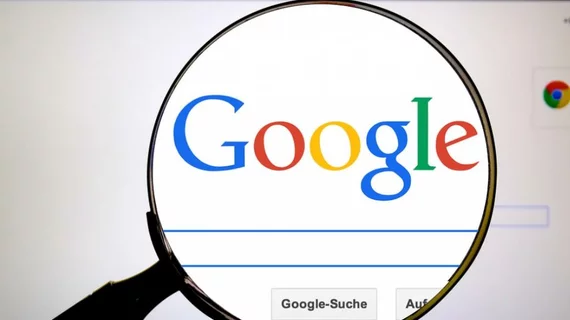Google exploring EHR that can predict medical events using AI
A patent application filed by Google indicates that the company is looking to develop an electronic health records (EHR) system that uses AI to predict a patient’s future medical events.
News of Google’s patent application was first reported by Politico on Monday after the United States Patent and Trademark Office published the application on Jan. 31. The application was first submitted by Google in July 2017.
The system would be used to predict and summarize medical events from EHRs and would include computer memory that stores aggregated EHRs from a multitude of patients, according to the application.
Based on information from the EHRs, the system would use deep-learning models to predict future clinical events and summarize pertinent past medical events in a standardized data structure format. A healthcare provider-facing interface would then display a patient's predicted and past medical events.
“There is a need for systems and methods to assist healthcare providers to allocate their attention efficiently among the overabundance of information from diverse sources, as well as to provide predictions of future clinical evens and highlighting of relevant underlying medical events contributing to these predictions in a timely manner,” the application stated.
The EHR could help physicians answer questions, such as "which patients have the highest need for my attention now and, at an individual level, what information in the patient’s chart should I attend to," read the application.
News of Google’s patent application comes after a United Nations report revealed more than 340,000 AI-related patent applications have been filed since the the 1950s, with more than half of those published after 2013. The rapid pace of patent applications will likely result in a wave of AI-based products and apps, the UN predicted.

